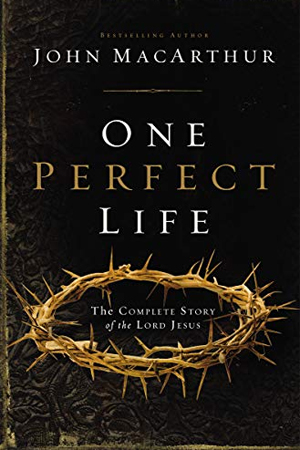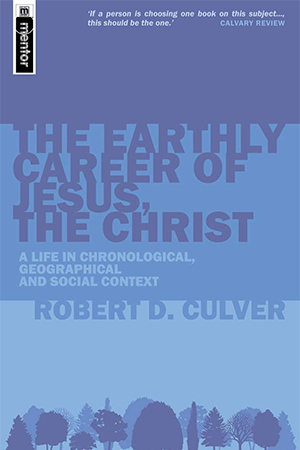This summary concerns this week’s reading between both texts ‘One Perfect Life, The Complete Story of the Lord Jesus’ (MacArthur), and ‘The Earthly Career of Jesus, the Christ, A Life in Chronological, Geographical and Social Context (Culver).’ Throughout the written comments and observations given here, both texts’ substance is brought together to form a coherent view about the time of Jesus in the Jericho area to the beginning of the passion week. More generally, from the time of Jesus’ travels from Jericho, Bethany, and Jerusalem to His withdrawal to the Mount of Olives just East of Jerusalem. Throughout this period of Jesus’ life, there is a lot of activity packed into a short period. His triumphal entry into Jerusalem as Israel’s King was presented to Jerusalem’s population and its leaders their Messiah as promised and prophesied over the many centuries before.
At the temple, in the midst of many miraculous signs, wonders, events, and proclamations, Jesus appeared before the people to endure numerous confrontations from the Sanhedrin, Pharisees, Sadducees, Herodians, and others to withstand and counter their trappings. Which altogether amounted to their rejection of Him as their Messiah regardless of all that He had done to fulfill prophecy, heal people, and raise the dead to demonstrate who He is. Nevertheless, as the sovereign will of God came about to seal His rejection as the Jewish Messiah, Jesus and His disciples share a final meal together at the last supper in an Upper Room. Where well-known traditions become formed to establish sacraments such as communion and the washing of feet, their significance is of enormous gravity. Framed around Jesus’ warnings that He was about to be tried and executed, He encouraged His apostles to give them hope and to remind them of what it was to love and serve one another. To live in remembrance of Him and to accomplish what He modeled for them.
As I read through the entire texts of both Culver and MacArthur, the upper room to the following withdrawal toward the Mount of Olives is of utmost importance. Especially due to the events and circumstances that arose throughout the day. Right after His rejection in Jerusalem from Jewish authorities, and the betrayal of Jesus, He and His disciples returned to the Mount of Olives to recount what had occurred and to prepare for the days ahead. Jesus spoke of parables and the coming persecution, which would culminate in His death just hours before where they now would wait for His captors’ arrival. Jesus knew what was coming, where His apostles were not aware of the specifics to which they would become scattered, and He was to be placed on trial and condemned to death.
Just outside Jerusalem, up higher to the East, Jesus spoke to His disciples about numerous principles concerning the Kingdom, what was to befall Jerusalem, and His return as King before all creation. At the garden of Gethsemane in the same general area, Jesus’ prayer for His disciples and for followers in generations to come would echo throughout time to unity, safety, and fellowship as they were to remain in Him as they were given for the Kingdom as a promise fulfilled. The prayer also amounted to tremendous hardship as He knew of His imminent arrest and forthcoming sufferings.
The MacArthur text read through this week stops at Jesus’ arrest. Where the Culver text continues to cover His last night before Annas, Caiaphas, and the Sanhedrin put together a coordinated effort to capture Jesus and place Him before the Roman court. They together sought to have Jesus crucified. Their timing of arrest, interrogation, and method of placing Him before the Roman court were all unjust evils that were permitted. It was Jesus Himself who willingly gave Himself up as a sacrifice as intended. When Jesus’ response to Caiaphas was spoken,
Jesus said to him, “You have said it yourself; nevertheless I tell you, hereafter you will see the Son of Man sitting at the right hand of Power, and coming on the clouds of heaven.” – Matt 26:64
It would appear from what was spoken at the time of Daniel (Dan 7:13) to then before His accusers, He was in full control of the situation, and He willingly set His face to undergo the sufferings as described by the prophet Isaiah (Is 53). For a purpose that they were otherwise oblivious to, His mission as Messianic King was well beyond them as there was far more at stake. Specifically, as Paul, the Apostle later wrote,
“Yet we do speak wisdom among those who are mature; a wisdom, however, not of this age nor of the rulers of this age, who are passing away; but we speak God’s wisdom in a mystery, the hidden wisdom which God predestined before the ages to our glory; the wisdom which none of the rulers of this age has understood; for if they had understood it they would not have crucified the Lord of glory; but just as it is written,
Things which eye has not seen and ear has not heard,
And which have not entered the heart of man,
All that God has prepared for those who love Him.”
-1 Cor 2:6–9
On the surface, it appears that the setup was placed upon Jesus. In fact, YHWH placed upon spiritual forces opposed to Him a set of circumstances by which the Kingdom of God was ushered into creation as humanity was reclaimed. The King who was about to be executed was on the cusp of conquering enemies of far more consequence than the trivial Jewish authorities before Him. They were veritable tools in the tool shed to help form an outcome that nearly everyone was oblivious about.













